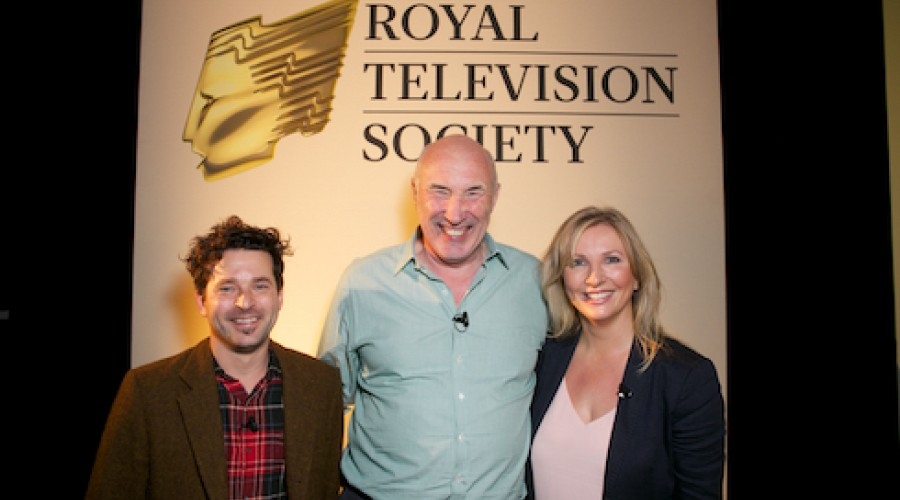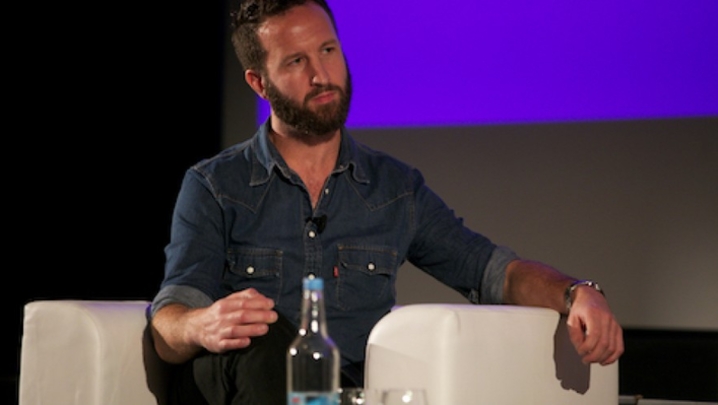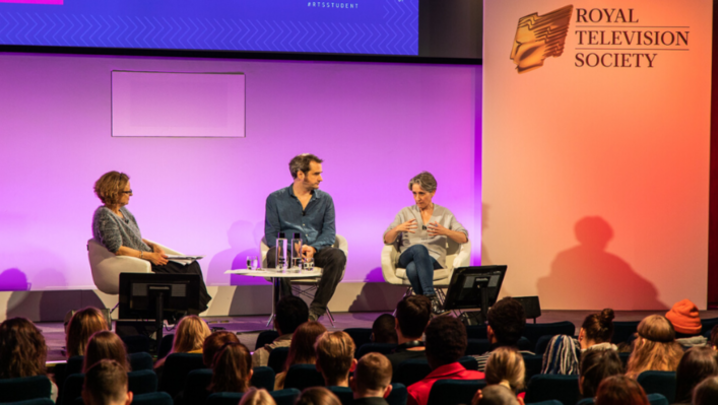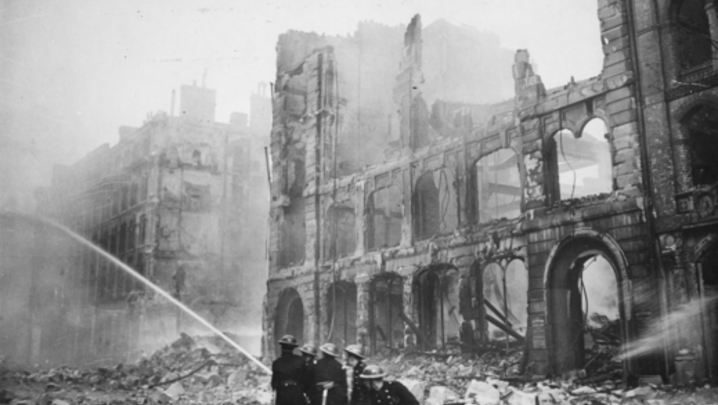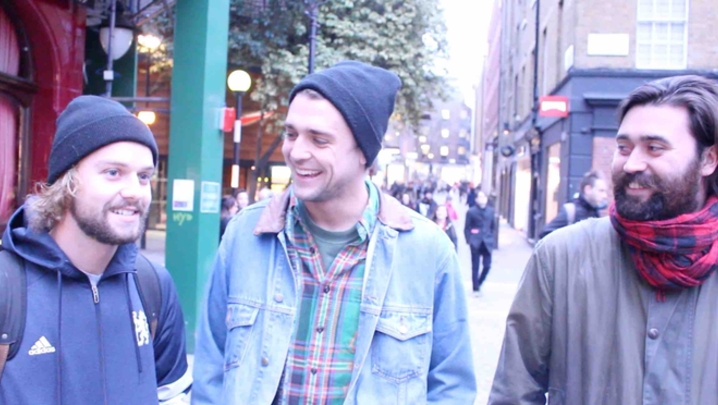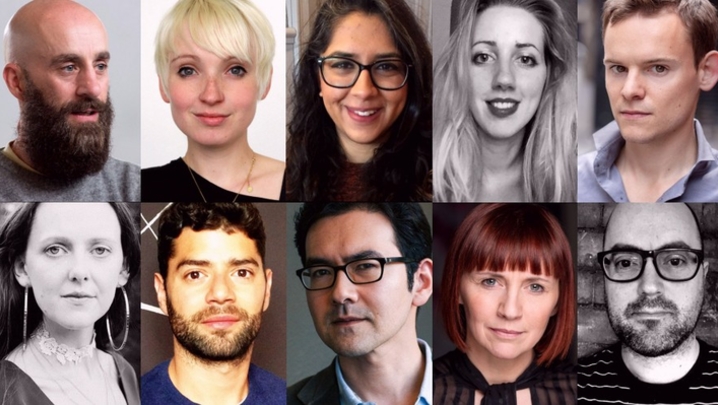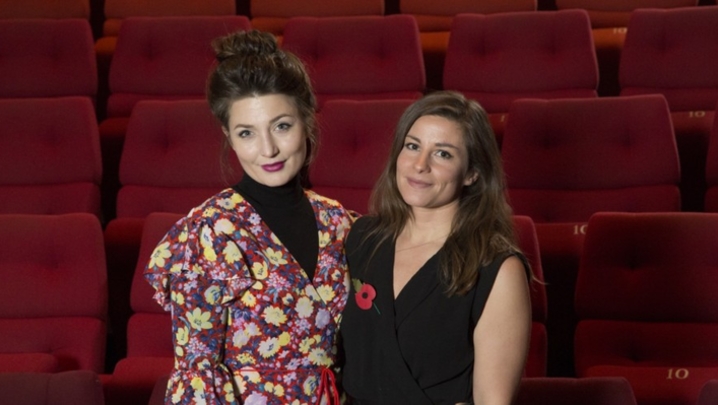Editors showed examples of their work to eager students
When it comes to producing great television, a good editor is where it all begins and ends. That was the clear message for students attending the RTS craft skills editing masterclass.
Ben Stark, a feted documentary film editor and Una Ni Dhonghaile, who has won plaudits for her work editing TV drama, delivered the masterclass chaired by media consultant Alex Graham.
Stark and Dhonghaile each discussed three examples of their work.
Graham began the session by advising the 200-strong audience to "beg or buy their way into an editing suite with a really good editor". That way, "the craft of television can be learned."
Stark didn’t plan to be an editor. "I did a bit of directing, a bit of writing, a bit of shooting and discovered that for me all of the things I am interested in happen in the cutting room," he recalled.
After he talked his way into editing rooms and met talented editors, he realised directing left him "a little bit flat”.
“You've got to have a huge, huge passion as a director to push through a documentary like the ones I work on. You've got to be so dedicated to it," Stark said of his editing work on Falling Man, Stones In Exile and Boxing Day Tsunami.
Dublin-born Dhonghaile said she had grown up in a family with no media contacts but one that had a brilliant oral storytelling tradition.
Her father's bedtime stories - never read from a book and always straight from his imagination - were enjoyably "real and visceral". It was during stints at college that she discovered the power of editing and "never looked back".
Although both have worked across genres, at the masterclass Stark talked about documentary editing. Meanwhile Dhonghaile provided insight into the work of a drama editor.
The first clip was from BBC drama The Missing, starring James Nesbitt and Frances O'Connor as parents whose five-year-old son is lost during a holiday in France.
Dhonghaile edited the show's powerful scene when the boy goes missing and the father's rising panic when he can't find him.
The students were shown this section of the shooting script to highlight differences between what was filmed and how it appeared on the page and what ended up on screen.
While the script called for total silence early on in the scene, Dhonghaile thought this would stretch viewers’ credulity too far.
Tom Shankland, who directed all eight episodes, agreed. The upshot was Dhonghaile cut it with sound until the very end of the scene.
She said the editing aimed to capture the ordinariness of the situation and –cutting back from wide shots to close ups – underline the creeping horror.
Stark talked about Boxing Day Tsunami, a documentary nominated for a BAFTA for best editing.
With filmmaker Ursula Macfarlane, Stark aimed to create a film using as little footage from that fateful December 26 day in 2004 as possible.
Stark's aim was to construct a documentary celebrating human resilience following the natural disaster that left 250,000 dead.
"We wanted to make a film built around how amazing we as people are and our ability to survive and move on and maybe try and find a logic in a random moment," Stark noted.
Stark warned of the intensity of spending hours and hours watching footage of the families in an editing suite.
He had to make sense of their innermost feelings and unfettered reactions to highly emotional events.
Both editors agreed that across both drama and documentary less can be more.
Sometimes knowing when not to cut can provide for a more powerful impact on the finished piece than an elaborate edit.
Dhonghaile then chose Ripper Street, a BBC One costume drama set in London in 1889 during the aftermath of Jack The Ripper murders.
Starring Matthew Macfadyen, the opening pre-title sequence sees a tour guide taking toffs on a sightseeing tour of the infamous Whitechapel district.
This is intercut with a separately filmed scene of Macfadyen as an undercover police officer watching an illegal bare-knuckle boxing bout.
Dhonghaile cut the scenes together to introduce viewers quickly to MacFadyen's character. Originally the fight didn't appear until after the opening credits, seven minutes into the show.
The director and the producer left her in the cutting room on a Wednesday with the words "See what you can do" ringing in her ears.
They were scheduled to return Friday lunchtime. "The first thing to do in those circumstances is to have a cup of tea," she laughed.
The myriad sources, overwhelming amount of material coupled with famously controlling media savvy subjects added to Stark's task in assembling Stones In Exile.
The documentary details the story of the band in the early 1970s recording their classic LP, Exile In Main Street. At the time the Rolling Stones are U.K. tax exiles and holed up in a sprawling villa in the South of France. Also present are their families, girlfriends and a copious supply of drugs.
Stark began with hours of transcripts of audio-only recordings before reels of old 16mm film footage were unearthed. These included off cuts of the banned Cocksucker Blues, Robert Frank's unreleased documentary sourced from the Rolling Stones' personal archive.
Stark approached sifting through this mountain of footage and audio by trying to portray an understanding of band member differences.
He described the Stones as "incredibly trusting" while also being clear about what wasn't to be included. "An editor's dream and a nightmare at the same time," Stark said.
Next up was Dhonghaile's work on Hettie Macdonald's BAFTA winning TV movie White Girl, written by Abi Morgan.
It is the story of a teenage girl re-located by her working class single mother from Leeds to Bradford. She is the only white girl in her class at school.
Her mother rekindles her relationship with her abusive former partner. When her daughter embraces the Muslim faith, tensions build.
Dhonghaile said she had to tread a delicate line when portraying abuse from the stepfather. TV broadcast rules are strict for such potentially violent content. She was at pains to piece together the threat of violence rather than violence per se.
Dhonghaile mixed footage filmed from separate cameras and angles in the edit. She removed a lot of dialogue from a wedding reception scene - a classic case of less is more - before using footage from the girl’s perspective to reinforce viewer sympathy.
A good editor should always be "a bit of a magpie" stealing from anywhere and everywhere.
Stark's final clip was from Henry Singer's award-winning documentary, Falling Man. It shows people falling to their deaths as one of the twin towers of the World Trade Centre burned following the September 11 attacks.
When Stark was sent it, Alan Mackay had already edited it. Executive producer John Smithson, whose company Darlow Smithson Productions made the film for Channel 4, persuaded Stark to do it.
Originally he had turned it down after becoming a father three days before. Smithson reckoned he had a good film but thought "it should be a great film."
He sent it to Stark's home knowing Stark wouldn't be able to resist looking at it. While a valid document of the 9/11 attacks, Stark's interest was piqued by Mackay's original edit detailing a photographer and news footage of people in their last moments.
Around 48 hours after the event those images had disappeared from TV news reports.
Stark wanted to tell the falling people story and that of the photographer who had almost inadvertently captured them.
He edited it so the people falling are initially small, almost unseen. This then builds to footage of clearly visible bodies falling through the air to their deaths.
"I needed warming up during the documentary to be able to watch without turning away," Stark noted.
Dhonghaile said that tips for editors would be: "Make sure that the story, the plots and the action informs the characters, keep the audience empathising with them. Keep a clear head and be inventive and don't be afraid of trying things out."
Stark told the students not to be afraid of getting it wrong because "there is no wrong."
The RTS Craft Skills Masterclasses were held at the BFI on London’s South Bank, November 11. The producer was Helen Scott.

